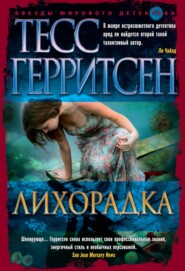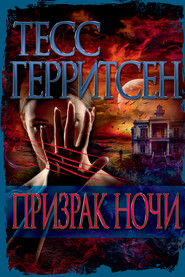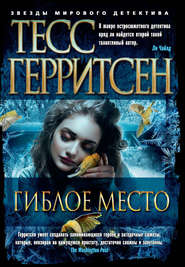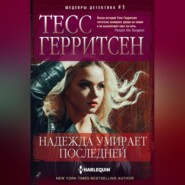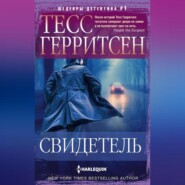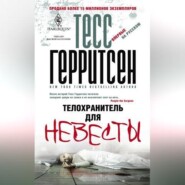По всем вопросам обращайтесь на: info@litportal.ru
(©) 2003-2024.
✖
Presumed Guilty
Автор
Год написания книги
2018
Настройки чтения
Размер шрифта
Высота строк
Поля
Oh, Miss St. John knew that look. Even if she couldn’t actually see the beast’s eyes under all that fur, she knew what the look meant. Sighing, she opened the door. The black bundle of fur practically shot down the porch steps and took off for the woods. Miss St. John had no choice but to follow him, and so off into the woods she went.
It was a warm evening, one of those still, sweet twilights that seem kissed with midsummer magic. She would not be surprised to see something extraordinary tonight. A doe and fawn, perhaps, or a fox cub, or even an owl.
She moved steadily through the trees in pursuit of the dog. She noticed they were headed in a direct line toward Rose Hill Cottage, the Tremains’ summer camp. Such a tragedy, Richard Tremain’s death. She hadn’t particularly liked the man, but theirs were the last two cottages on this lonely road, and on her walks here she had occasionally seen him through his window, his head bent in concentration at his desk. He’d always been polite to her, and deferential, but she’d suspected much of it was automatic and not, in any sense, true respect. He’d had no use for elderly women; he simply tolerated them.
But as for young women, well, she’d heard that was a different story.
It troubled her, these recent revelations about his death. Not so much the fact of his murder, but the identity of the one accused. Miss St. John had met Miranda Wood, had spoken to her on several occasions. On this small island, in the dead of winter, only green thumb fanatics braved the icy roads to attend meetings of the local garden club. That’s where Miss St. John had met Miranda. They’d sat together during a lecture on triploid marigolds, and again at the talk on gloxinia cultivation. Miranda was polite and deferential, but genuinely so. A lovely girl, not a hint of dishonesty in her eyes. It seemed to Miss St. John that any woman who cared so passionately about flowers, about living, growing things, could simply not be a murderess.
It bothered her, all that cruel talk flying about town these days. Miranda Wood, a killer? It went against Miss St. John’s instincts, and her instincts were always, always good.
Ozzie bounded through the last stand of trees and shot off toward Rose Hill Cottage. Miss St. John resignedly followed suit. That’s when she saw the light flickering through the trees. It came from the Tremain cottage. Just as quickly, it vanished.
At once she froze as an eerie thought flashed to mind. Ghosts? Richard was the only one who ever used that cottage. But he’s dead.
The rational side of her brain, the side that normally guided Miss St. John’s day-to-day existence, took control. It must be one of the family, of course. Evelyn, perhaps, come to wrap up her husband’s affairs.
Still, Miss St. John couldn’t shake off her uneasiness.
She crossed the driveway and went up the front porch steps. “Hello?” she called. “Evelyn? Cassie?” There was no answer to her knock.
She tried to peer in the window, but it was dark inside. “Hello?” she called again, louder. She thought she heard, from somewhere in the cottage, a soft thud. Then—silence.
Ozzie began to bark. He danced around on the porch, his claws tip-tapping on the wood.
“Oh, hush!” snapped Miss St. John. “Sit!”
The dog whined, sat, and gave her a distinctly wounded look.
Miss St. John stood there a moment, listening for more sounds, but she heard nothing except the whap-whap of Ozzie’s tail against the porch.
Perhaps she should call the police. She debated that move all the way back to her cottage. Once there, in her cheery little kitchen, the very idea seemed so silly, so alarmist. It was a good half-hour drive out here to the north shore. The local police would be reluctant to send a man all the way out here, and for what? A will-o’-the-wisp tale? Besides, what could there possibly be in Rose Hill Cottage that would interest any burglars?
“It’s just my imagination. Or my failing eyesight. After all, when one’s seventy-four, one has to expect the faculties to get a little screwy.”
Ozzie walked in a tight circle, lay down and promptly went to sleep.
“Good Lord,” said Miss St. John. “I’m talking to my dog now. What part of my brain will rot next?”
Ozzie, as usual, offered no opinion.
The courtroom was packed. Already, a dozen people had been turned away at the door, and this wasn’t even a trial, just a bail review hearing, a formality required by law to be held forty-eight hours after arrest.
Chase, who sat in the second row with Evelyn and her father, suspected the proceedings would be brief. The facts were stark, the suspect’s guilt indisputable. A few words by the judge, a bang of the gavel and they’d all be out of there.
And the murderess would slink back to her cell, where she belonged.
“Damned circus, that’s what it is,” growled Evelyn’s father, Noah DeBolt. Silver haired and gravel throated, at sixty-six he was still as formidable as ever. Chase felt the automatic urge to sit up straight and mind his manners. One did not slouch in the presence of Noah DeBolt. One was always courteous and deferential, even if one was an adult.
Even if one was the chief of police, Chase noted, as Lorne Tibbetts stopped and politely tipped his hat at Noah.
The principals were settling in their places. The deputy D. A. from Bass Harbor was seated at his table, flipping through a sheaf of papers. Lorne and Ellis, representing half the local police force, sat off to the left, their uniformed spines ramrod straight, their hair neatly slicked down. They had even parted it on the same side. The defense attorney, a youngster wearing a suit that looked as if it cost twice his annual salary, was fussing with the catch on his leather briefcase.
“They should clear this place out,” grunted Noah. “Who the hell let all these spectators in? Invasion of privacy, I call it.”
“It’s open to the public, Daddy,” said Evelyn wearily.
“There’s public, and then there’s public. These people don’t belong here. It’s none of their damn business.” Noah rose and waved for Lorne’s attention, but the chief of police’s brilliantined head was facing forward. Noah glanced around for the bailiff, but the man had disappeared through a side door. In frustration, Noah sat back down. “Don’t know what this town’s coming to,” he muttered. “All these new people. No sense of what’s proper anymore.”
“Quiet, Daddy,” murmured Evelyn. Then, fuming, she muttered, “Where are the twins? Why aren’t they here? I want the judge to see them. Poor kids without a father.”
Noah snorted. “They’re full-grown adults. They won’t impress anyone.”
“There. I see them,” said Chase, spotting Cassie and Phillip a few rows back. They must have slipped in later, with the other spectators.
So the audience is in place, he thought. All weneed now are the two main players. The judge. Andthe accused.
As if on cue, a side door opened. The ape-size bailiff reappeared, his hand gripping the arm of the much smaller prisoner.
At his second glimpse of Miranda Wood, Chase was struck by how much paler she appeared than he remembered. And how much more fragile. The top of her head barely reached the bailiff’s shoulder. She was dressed unobtrusively, in a blue skirt and a simple white blouse, an outfit no doubt chosen by her attorney to make her look innocent, which she did. Her hair was gathered back in a neat but trim ponytail. No wanton-woman looks here. Those lush chestnut highlights were carefully restrained by a plain rubber band. She wore no jewelry, no makeup. The pallor of those cheeks came without the artifice of face powder.
On her way to the defendant’s table she looked once, and only once, at the crowd. Her gaze swept the room and came to rest on Chase. It was only a few seconds of eye contact, a glimpse of her brittle mask of composure. Pride, that’s what he saw in her face. He could read it in her body language: the straight back, the chin held aloft. Everyone else in this room would see it, too, would resent that show of pride. The brazen murderess, they’d think. A woman without repentance, without shame. He wished he could feel that way about her. It would make her guilt seem all the more assured, her punishment all the more justified.
But he knew what lay beneath the mask. He’d seen it in those eyes two days before, when they’d gazed out at him through a one-way mirror. Fear, pure and simple. She was terrified.
And she was too proud to show it.
* * *
From the instant Miranda walked into the courtroom, none of it seemed real. Her feet, her legs felt numb. She was actually grateful for the firm grip of the bailiff’s hand around her arm as they stepped in the side door. She caught a kaleidoscopic glimpse of all those faces in the audience—if that’s what you called a courtroom full of spectators. What else could you call them? An audience here to watch her performance, an act in the theater of her life. Half of them had come to hang her; the other half were here to watch. As her gaze slowly swept the room she saw familiar faces. There were her colleagues from the Herald: Managing Editor Jill Vickery, looking every bit the sleek professional, and staff reporters Annie Berenger and Ty Weingardt, both of them dressed à la classic rumpled writer. It was hard to tell that they were—or had been—friends. They all wore such carefully neutral expressions.
As her gaze shifted, she took in a single friendly face in the crowd—old Mr. Lanzo, her next-door neighbor. He was mouthing the words I’m with you, sweetie! She found herself almost smiling back.
Then her gaze shifted again, to settle on Chase Tremain’s stony face. The smile instantly died on her lips. Of all the faces in the room, his was the one that most made her feel like shrinking into some dark, unreachable crevice, anywhere to escape his gaze of judgment. The faces beside him were no less condemning. Evelyn Tremain, dressed in widow’s black, looked like a pale death’s mask. Next to Evelyn was her father, Noah DeBolt, town patriarch, a man who with one steely look could wither the spirit of any who dared offend him. He was now aiming that poisonous gaze at Miranda.
The tug of the bailiff’s hand redirected Miranda toward the defendant’s table. Meekly she sat beside her attorney, who greeted her with a stiff nod. Randall Pelham was Ivy League and impeccably dressed for the part, but all Miranda could think of when she saw his face was how young he looked. He made her feel, at twenty-nine, positively middle-aged. Still, she’d had little choice in the matter. There were only two attorneys in practice on Shepherd’s Island. The other was Les Hardee, a man with experience, a fine reputation and a fee to match. Unfortunately, Hardee’s client list happened to include the names DeBolt and Tremain.
Randall Pelham had no such conflict of interest. He didn’t have many clients, either. As the new kid in town, he was ready and willing to represent anyone, even the local murderess.
She asked softly, “Are we okay, Mr. Pelham?”
“Just let me do the talking. You sit there and look innocent.”
“I am innocent.”
To which Randall Pelham offered no response.
“All rise for His Honor Herbert C. Klimenko,” said the bailiff.






